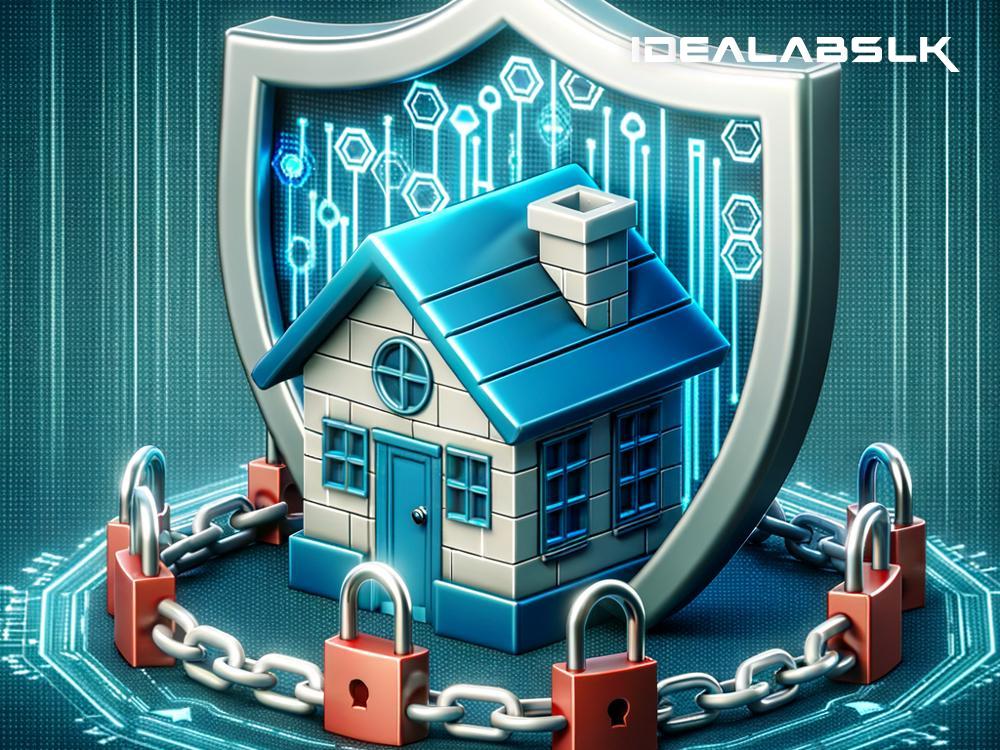Blockchain: Transforming Real Estate Fraud Prevention and Detection
In a world of ever-evolving technology, blockchain is emerging as a game-changer in numerous fields, especially in real estate. A sector once plagued by fraud and transparency issues is seeing a new dawn, all thanks to this innovative technology. But what is blockchain, and how is it redefining fraud prevention and detection in real estate? Let's dive in and simplify this complex topic.
What is Blockchain?
Imagine a ledger or a notebook that keeps records of all transactions made, which is not held by one person or entity but is shared among a network of users. This ledger is visible to everyone within the network and is tamper-proof. Once a record is made, it cannot be altered or deleted, ensuring transparency and security. This is blockchain, a system of recording information in a way that makes it difficult or impossible to change, hack, or cheat the system.
The Real Estate Problem
Real estate transactions involve significant sums of money and multiple parties, such as buyers, sellers, agents, and banks. This complexity often makes it a breeding ground for fraudulent activities, including title fraud and double selling. Title fraud happens when someone forges documents to claim ownership of a property illegally, while double selling refers to a seller attempting to sell a single property to multiple buyers. These issues not only cost individuals millions but also shake their trust in the real estate market.
Blockchain to the Rescue
Blockchain technology is playing a pivotal role in addressing these fraud concerns in several ways:
1. Immutable Records
In a blockchain-based system, once a transaction (like the sale of a property) is recorded, it cannot be altered or deleted. This creates an immutable history of ownership and transactions tied to a property, making it nearly impossible for fraudsters to forge documents or claim false ownership.
2. Smart Contracts
These are self-executing contracts with the terms of the agreement directly written into lines of code. In real estate, smart contracts can automate and enforce the fulfillment of a sale once certain conditions are met (e.g., payment confirmation). This reduces the need for middlemen, cutting down opportunities for fraud.
3. Transparency
With blockchain, every transaction is visible to all participants in the network, and every participant has a copy of the transaction ledger. This level of transparency ensures that any discrepancies or fraudulent activities can be spotted and resolved quickly.
4. Tokenization
Blockchain allows properties to be represented as digital tokens that can be easily and securely traded. This process simplifies transactions, reduces paperwork, and makes it harder for fraudsters to manipulate property sales or ownership.
5. Identity Verification
By using blockchain-based identity verification, real estate transactions can become more secure. Potential buyers and sellers have to undergo a verification process, and once verified, their identities are securely stored on the blockchain. This makes it difficult for fraudsters to impersonate others or engage in unauthorized transactions.
Real-World Applications
Several countries and companies are already exploring or implementing blockchain in real estate. For instance, Sweden's land registry authority has piloted a project to digitize real estate transactions using blockchain, aiming to increase transparency and reduce fraud. Similarly, various startups are creating blockchain platforms to manage property listings, transactions, and records securely.
Challenges and the Future
Despite its benefits, blockchain's adoption in real estate is not without challenges. Regulatory hurdles, the technical complexity of blockchain itself, and the need for a shift in mindset among stakeholders in the real estate industry are significant barriers. However, as technology evolves and more players recognize its advantages, blockchain's role in fraud prevention and detection in real estate is expected to grow.
In conclusion, blockchain technology offers a promising solution to the age-old problem of fraud in real estate. By ensuring transparency, security, and efficiency, blockchain can not only prevent and detect fraud but also rebuild trust in the real estate market. As we move forward, embracing this technology could lead to a more secure and transparent real estate industry for everyone involved.

